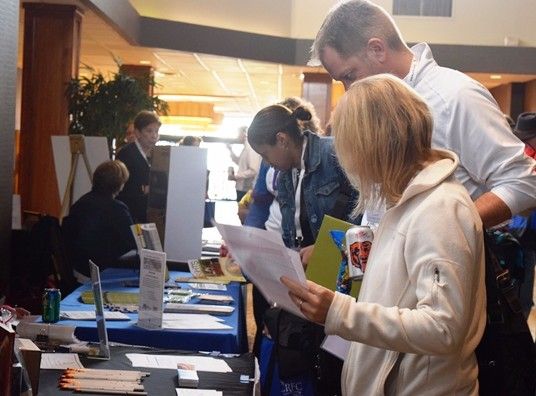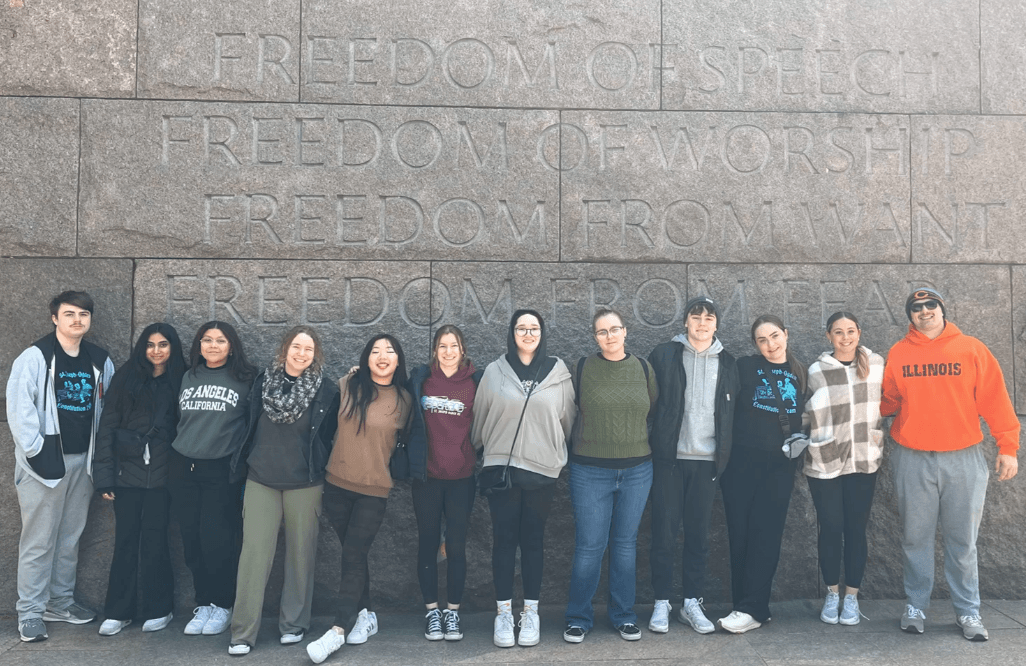2020 Workshops
Challenges in American Democracy; With Liberty and Justice for All?
The 2020 Annual Conference for Teachers in Civics, Law, and Government, themed “Challenges in American Democracy; With Liberty and Justice for All?,” addresses the tensions that define modern American life. It offers resources dealing with current challenges to individual liberties, the legal system, the electoral system, and fundamental democratic institutions. The Constitutional Democracy Project’s Professional Development Conference offers a series of workshops to highlight best practices for teaching young people awareness of the law, the legal system, and their rights and responsibilities as engaged citizens.
Workshop Descriptions:
The 3R’s of the Electoral College: Retain, Replace, or Reform?
Presenter: Laurel Singleton, Education Consultant
The 2016 election marked the fourth time since the Civil War that the presidential candidate who won the popular vote did not win the electoral vote and therefore did not become President. Despite the discussion prompted by this controversial election, many citizens still do not fully understand how the electoral college functions. This session will answer participants’ questions about how the electoral college works and engage them in considering arguments for retaining, replacing, or reforming the electoral college.
The Supreme Court: The Changing Court and Self-Evident Truths, a look back and forward
Presenter: Dan Cotter, Howard & Howard Attorneys PLLC
In October 2020, a third President Trump judicial nominee will be confirmed by the Senate, changing the makeup of the Court. This session will explore the history of Article III, why it left so much open, and look ahead to some ways in which this Court will likely be different than past Roberts Courts.
The Constitution: The (Continuing) Miracle at Philadelphia
Presenter: Dan Cotter, Howard & Howard Attorneys PLLC
This session will take a look at the leadup to, and the miracle, that took place at Philadelphia and what the Founders worried about. It will address some of the liberties contained in it and also explore how the Supreme Court has addressed some of the most impactful provisions on liberty, including the Bill of Rights and the 14th Amendment, and efforts to reopen the document via states conventions.
The Struggle for the U.S. Supreme Court
Presenter: Christopher Schmidt, IIT Chicago-Kent College of Law
This session will place today's struggle for control of the Supreme Court into historical context. We will review major developments in the Court's history over the past century, focusing on episodes in which the Court became a focal point for political battles. Topics will include: FDR's failed Court-packing plan; the battle over school desegregation following Brown v. Board of Education; Nixon's attack on the Warren Court; the conservative campaign to overturn Roe v. Wade; Robert Bork's failed nomination to the Court; the Senate's refusal to hold hearings on Obama nominee Merrick Garland. We will examine how our current debate about the Court and Court reform compare to past debates.
Supreme Court Preview (OT 20) - Offered Twice
Presenter: Steven Schwinn, UIC John Marshall Law School
This session will preview the major cases now on the docket for the Supreme Court's October 2020 Term, including putting these cases in a larger context of trends and patterns o the Court and in its jurisprudence.
A Tale of Two Pandemics: The Intersectionality of COVID-19 & Racism and How to Teach Effectively Within It
Presenter: Natasha Robinson, Roosevelt University
We find ourselves between two intersecting pandemics (racism & COVID-19) that cause our breathing to be in literal and figurative jeopardy. How do we create virtual and face-to-face classroom cultures and climates where we acknowledge and investigate these pandemics with our students? What teaching content and strategies can we use to strengthen our communities? In this session we will engage in self-reflection and collaborate in order to seek the answers and create personalized solutions.
Policing & the Fourth Amendment at the Supreme Court: Unpacking Torres v. Madrid
Presenters: Tiffany Middleton & Cathie Hawke, American Bar Association Division for Public Education
This session will delve into a hot-button case before the U.S. Supreme Court this term: Torres v. Madrid. This case explores whether a woman who was shot by police in Albuquerque while fleeing a scene, “was seized” under the Fourth Amendment. The case presents interesting angles for discussing current issues. Case-related resources will be shared, along with ideas for using this case with students.
Remembering RBG: Reflections from a Former Law Clerk
Presenters: David Franklin, DePaul College of Law & Carolyn Shapiro, IIT Chicago-Kent College of Law
In this session, David Franklin, a former law clerk to Ruth Bader Ginsberg, will be interviewed about his experience working with the legendary Justice by Carolyn Shapiro, a law professor at IIT Chicago-Kent College of Law and a former law clerk to Justice Stephen Breyer.
The Supreme Court Nomination of Amy Coney Barrett
Presenter: Steven Schwinn, UIC John Marshall Law School
This session will examine the Amy Coney Barrett Supreme Court Justice nomination as a case study for the intersection of policy, politics, and constitutional law.
Youth Activism in Driving American Social Change
Presenter: Lindsey Draper, Attorney
The year 2020 has seen significant demonstrations – mainly led by youth – demanding law enforcement reform and other social justice movements. These protests are the successors to numerous movements and demonstrations in which young people have been the foot-soldiers for social change. This session will examine some of the important movements in American history; the role of young citizens in them; and some of the results achieved through their efforts.
What Makes a Good Leader?
Presenter: Joseph Baar Topinka, Texas State University
Recently, we’ve seen great debate in the news about values, civility, and what we as citizens perceive as good traits in our leaders at all levels of government. By studying Judy Baar Topinka’s life and philosophy, students can discuss qualities of leadership as well as how her thinking and life is relevant today. Key topics include: good government is good management and leadership; civility; protocol; compromise; integrity; perseverance; heritage; respect and advocacy.
The 14th Amendment in 2020
Presenter: Christopher Riano, Center for Civic Education
As noted by Justice Powell, "Equal justice under law is not merely a caption on the facade of the Supreme Court building; it is perhaps the most inspiring ideal of our society." This session will discuss the jurisprudence and history of the 14th Amendment and the complexities that surround substantive due process and the equal protection clause, particularly in light of cases and questions that have come up in recent years and that are likely to come up in the future.
The Supreme Court's LGBTQ Ruling
Presenter: Carolyn Shapiro, IIT Chicago-Kent College of Law
Does Title VII of the Civil Rights Act prohibit discrimination based on sexual orientation or gender identity? In this session, we will unpack the landmark decision from last term in Bostock v. Clayton County, Altitude Express v. Zarda, and Harris Funeral homes v. Aimee Stephens.
Let's Give 'Em Something to Talk About: Engaging Student Voice in the 2020 Election
Presenter: Mary Ellen Daneels, Illinois Civic Mission Coalition
Explore how to enhance your classroom practice of engaging students in civil discourse, face-to-face or at a distance. Learn how to curate the right question, prompt, and strategy to meet your learning targets. Walk away with free resources to facilitate better conversations and reflective practices.

PRE-COVID Conferences!

